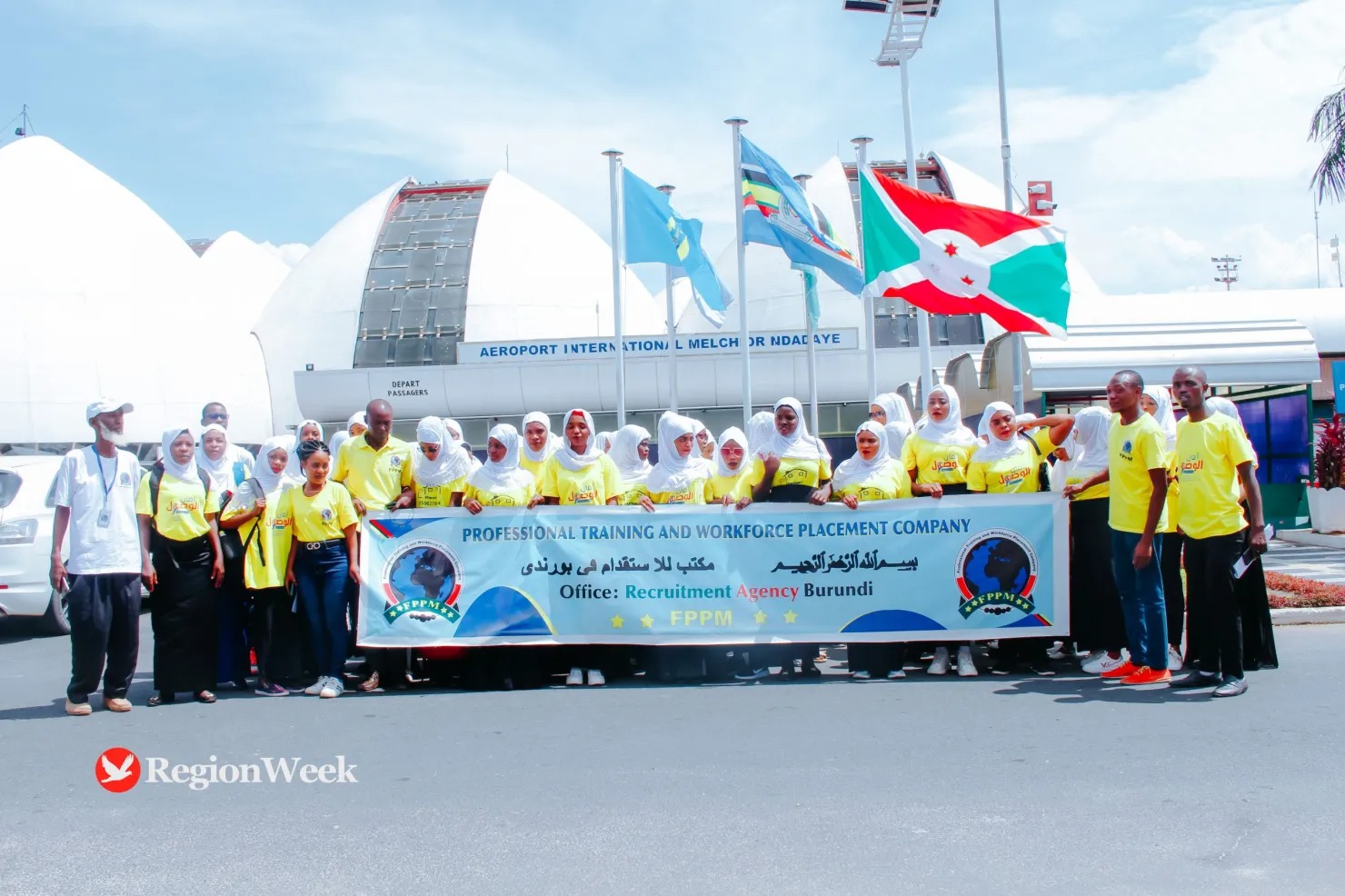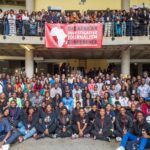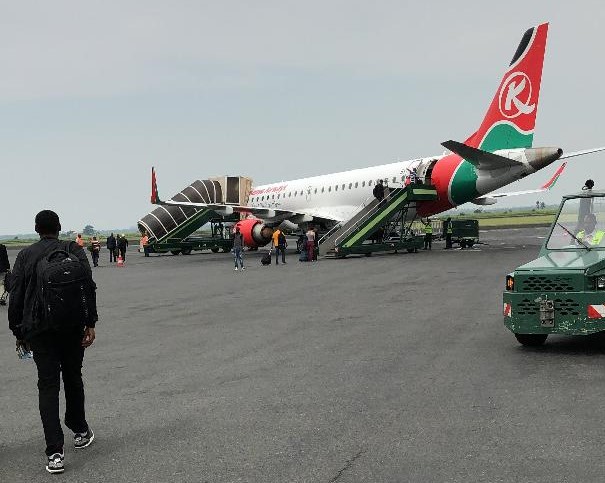Yves Ishimwe is a Burundian human rights advocate and programme manager specializing in child protection and counter–human trafficking. Since 2016, he has worked with FENADEB, leading initiatives to prevent trafficking and support victims. He holds an LL.M. in Human Rights and International Criminal Justice from the University of Kent (UK).
Every year, thousands of young Burundian women leave their homes for Saudi Arabia, hoping to find decent jobs that will lift their families out of poverty. Many never return the same. Behind their pain lies a 2021 bilateral agreement under which the Government of Burundi exports its citizens as domestic workers to Saudi Arabia—a deal that has become less a framework for protection than a system of exploitation. When a state earns millions while its citizens are abused abroad, this is no longer labor migration. It is moral collapse disguised as cooperation.
The ten-article Agreement on Domestic Workers Recruitment between Burundi and Saudi Arabia in 2021 was introduced as a partnership “to protect the rights of both employers and domestic workers” (Article 2). Yet, such promises remain largely rhetorical. The agreement’s language is full of vague verbs like “endeavour,” “facilitate,” and “promote” and avoids any binding commitment. Even its dispute mechanism (Article 7), confined to “consultation through diplomatic channels,” excludes the very people it concerns: the workers.
This legal vagueness masks a troubling economic agenda. According to figures reported by the Ministry of Foreign Affairs in February 2025, Burundi had sent 17,000 domestic workers to Saudi Arabia earning 10 billion Burundian francs and 10 million U.S. dollars in national revenue in just a year and half. In other words, the government profits directly from the export of cheap, unprotected labour; a transactional arrangement in which citizens become a source of income.
Licensing Exploitation: The Business Behind the Suffering
The exploitation does not start abroad; it begins at home. The Ministerial Ordinance No. 204/570/1018/2022 established the framework for recruitment agencies, requiring each to pay 100 million BIF for a license and 50 million BIF as a security deposit. To date, 27 agencies have been approved. But instead of protecting workers, this costly licensing system turned migration into a business for the privileged few.
Although Article 3 of the bilateral agreement and Article 9 of the ministerial ordinance both prohibit recruitment bodies from charging fees to workers, women are routinely forced to pay between 1 million and 2.5 million BIF to be “prioritized”. Some are even compelled to mortgage property or borrow at high interest to cover these illegal payments. This double burden – paying to leave and suffering upon arrival – reveals a state structure more interested in collecting fees than enforcing protections.
The Human Cost of a Profitable Policy
Behind the statistics lie real human lives. The National Federation of Child Rights Organizations in Burundi (FENADEB) which works on counter-trafficking has documented 92 cases of women who faced severe exploitation in Saudi Arabia in 2025. Their testimonies describe rape, unpaid wages, forced confinement, physical and psychological abuse.
One-37-year-old woman shared that she paid 2.5 million BIF to a recruitment agency in Bujumbura, believing she would find honest work. Upon arrival in Riyadh, her employer raped her, abandoned her on the street, and she was later detained by police. She returned to Burundi after weeks in custody, traumatized, unpaid, and forgotten.
Such stories make a mockery of Article 4 of the agreement, which claims Saudi authorities will “promote and protect the welfare and rights of domestic workers.” In reality, these workers are trapped within a system that denies them justice and silences their suffering. Burundi’s silence in the face of these abuses is deafening.
A Legal Framework Without Accountability
The agreement establishes a Joint Technical Committee (Article 6) to monitor and review its implementation. Yet, more than three years since its signing, there has been no public report, no recorded meetings, and no recommendations. This opacity reinforces the suspicion that the committee serves as a diplomatic formality rather than a mechanism of accountability.
Worse still, Article 5 obliges Burundi to “ensure that domestic workers complete their contract duration” and to “repatriate those in violation of contractual terms.” In practice, this clause pressures victims to endure abuse rather than report it, lest they be blamed for “breach of contract.” Instead of protecting them, Burundi’s institutions act as enforcers of their continued exploitation.
The Counterargument: Economic Necessity or National Shame?
Officials often defend the agreement as a necessary source of jobs and foreign currency. Yet, economic necessity cannot justify human degradation. True employment empowers — it does not enslave. The government’s argument that “workers go voluntarily” also rings hollow. Under the Protocol to Prevent, Suppress and Punish Trafficking in Persons Especially Women and Children (Palermo Protocol) ratified by Burundi since 2012 and the anti-trafficking law enacted since 2014, consent obtained through deception, debt, or desperation is not consent at all. It is one of the means of trafficking whereby traffickers exploit the vulnerability of victims.
If the government genuinely sought development, it would invest in domestic job creation, vocational training, and women’s entrepreneurship, rather than exporting poverty and calling it opportunity.
A Call for Moral and Political Accountability
The agreement’s renewal clause (Article 10) guarantees automatic five-year extensions, ensuring continuity of a system already proven harmful. Burundi’s leaders must break this cycle of complicity and decide what kind of nation it wants to be: one that enriches itself through the suffering of its women, or one that defends their dignity as its most sacred duty.
As long as this framework persists, Burundi’s labor export policy will continue to generate revenue at the expense of human dignity. True bilateral cooperation should establish independent oversight, legal aid for workers, and binding accountability mechanisms for agencies and employers alike. Anything less perpetuates a system of modern servitude masked by diplomatic formality. The Burundian government’s complicity in these abuses is not merely an administrative failure – it is a moral one. Until protection takes precedence over profit, Burundi’s domestic workers will remain both the nation’s export commodity and its silent victims.







Leave a comment